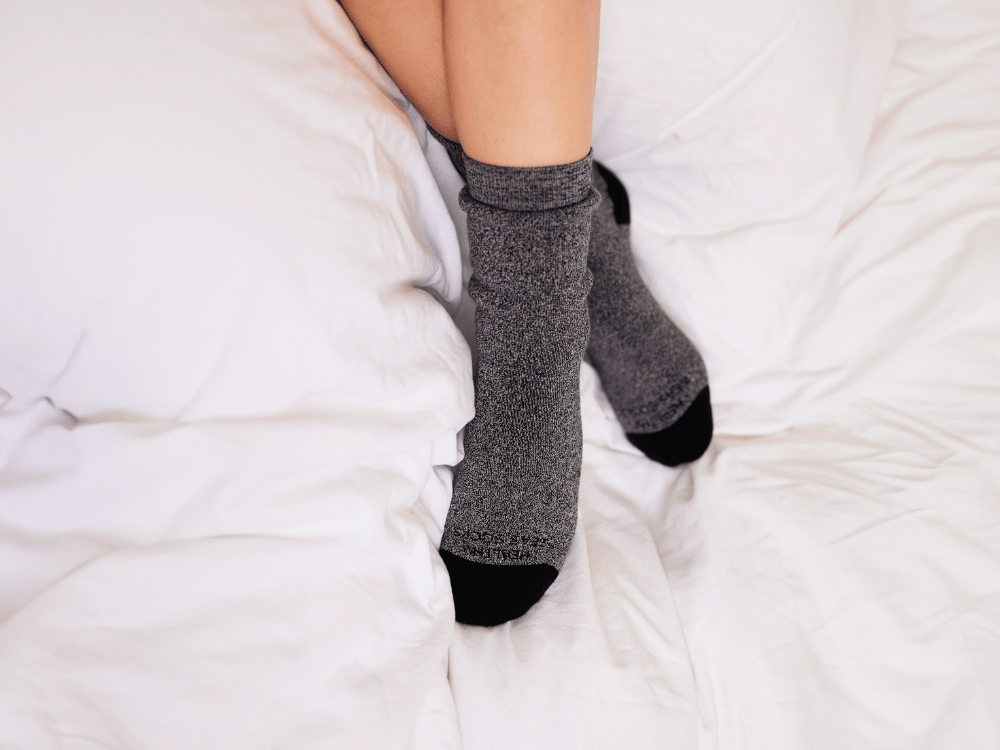THE SCIENCE BEHIND SLEEPING WITH SOCKS: FACT OR FICTION?
Sleeping is one of the most fundamental human needs, yet it remains a topic with many questions and debates. One of those points of contention is wearing socks while sleeping. For some, it's a comfortable habit, while others argue it could be harmful. Let's dive deeper into the question: is sleeping with socks on good or bad for you?
The benefits of sleeping with socks
Heat retention: One of the most obvious benefits of wearing socks while sleeping is retaining heat. Especially during cold nights, wearing socks can help maintain your body temperature, making you sleep more comfortably.
Improved sleep quality: Some studies suggest that wearing socks can help improve sleep quality. Warm feet can help you fall asleep faster and stay in a deeper sleep longer, resulting in waking up more refreshed.
Reduced sleep disorders: For people suffering from sleep disorders such as restless leg syndrome or chronic insomnia, wearing socks can help alleviate symptoms. The pressure from the socks on the feet can have a calming effect and reduce the feeling of restlessness.
The Drawbacks of Sleeping with Socks
Overheating: For some individuals, wearing socks while sleeping may lead to overheating, especially if the bedroom is already warm. Overheating can cause discomfort and make it harder to fall asleep.
Reduced blood circulation: There is some concern that tight socks may impede blood circulation, especially in people who already have circulation issues. This can lead to tingling, numbness, or even pain in the feet.
Increased risk of fungi and bacteria: If wearing socks that are not breathable, this can lead to moisture and sweat buildup, creating a damp environment where fungi and bacteria thrive. This can result in unpleasant odors and even foot infections.
Conclusion
Wearing socks while sleeping is a personal choice that depends on various factors, including individual preferences, sleep environment, and health conditions. For some people, socks may help promote better sleep by retaining heat and reducing sleep disorders. However, others may experience overheating, reduced blood circulation, or health issues from wearing socks while sleeping.
The key is to listen to your own body and experiment with what works best for you. If you find that wearing socks improves your sleep quality without any negative effects, there's no reason to stop. But if you notice that wearing socks disrupts your sleep or causes discomfort, it might be better to forego them and try other methods to stay warm while sleeping.












